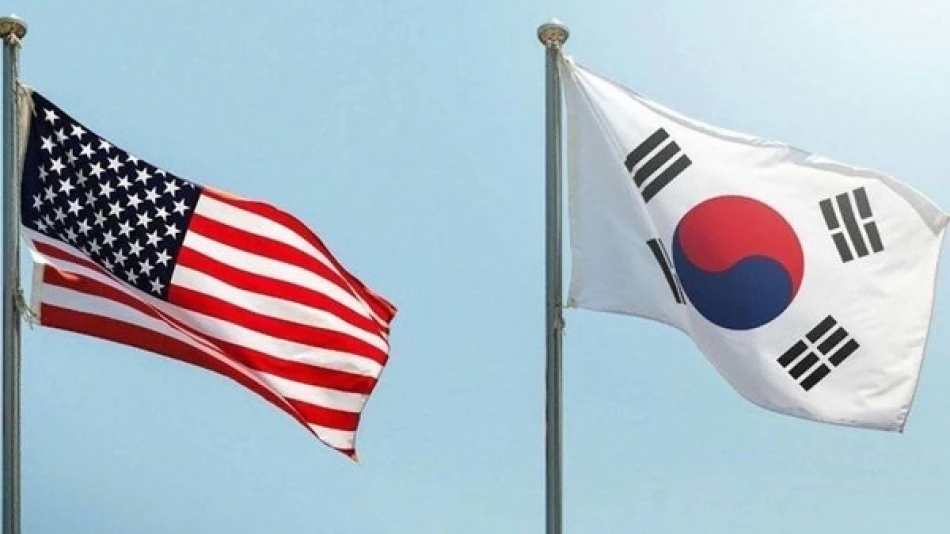
South Korea Intensifies Efforts to Avert Impending U.S. Tariffs
South Korea Launches Last-Ditch Diplomatic Blitz to Avert Looming US Trade War
Seoul is mobilizing its top economic and diplomatic officials for emergency talks in Washington next week as South Korea races against an August 1 deadline to prevent new American tariffs from triggering a broader trade conflict. The high-stakes negotiations represent Korea's most intensive diplomatic push yet to preserve its crucial trade relationship with the United States amid rising protectionist pressures.
Emergency Cabinet Meeting Signals Trade Crisis Escalation
The urgency became clear Saturday when Seoul's presidential office convened an emergency session led by Policy Office Director Kim Young-byum and National Security Advisor Wi Sung-lac, alongside finance, industry, and trade ministers. This level of coordination typically reserved for national security crises underscores how seriously Korea views the trade threat to its export-dependent economy.
The timing is particularly challenging for Seoul, as South Korea's economy relies heavily on exports to the US market, with steel and automotive sectors representing billions in annual trade flows. Any escalation in tariffs could ripple through Korea's manufacturing base and potentially destabilize the country's post-pandemic economic recovery.
25% Tariff Wall Already Hurting Korean Exporters
Current negotiations aim to roll back existing 25% reciprocal tariffs that have already strained bilateral trade relations. However, the real concern lies in potential additional levies specifically targeting Korean steel and automotive exports—two sectors that form the backbone of Korea's industrial economy.
These industries have faced increasing scrutiny from Washington as the Biden administration continues many of the trade policies initiated during the Trump era. Korean steelmakers like POSCO and automakers including Hyundai have already adjusted their supply chains and pricing strategies to navigate the existing tariff environment.
Shipbuilding Emerges as Unexpected Diplomatic Lifeline
In a strategic pivot, both sides have agreed to enhance cooperation in shipbuilding—a sector where Korea maintains global leadership and Washington has expressed growing strategic interest. This development suggests Seoul is leveraging its technological advantages in areas deemed critical to US national security interests.
The shipbuilding focus reflects broader geopolitical calculations, as the US seeks to rebuild its maritime industrial capacity amid tensions with China. Korea's advanced shipbuilding capabilities, particularly in LNG carriers and military vessels, align with American strategic priorities in the Indo-Pacific region.
High-Stakes Ministerial Diplomacy in Final Hour
Next week's meetings will feature Korea's finance and foreign ministers engaging directly with their American counterparts—a diplomatic configuration that signals Seoul's willingness to make significant concessions to preserve market access. The involvement of both economic and diplomatic leadership suggests potential trade-offs beyond simple tariff negotiations.
For investors and Korean exporters, the outcome will determine whether the world's 10th-largest economy can maintain its competitive position in the US market or faces the prospect of costly supply chain restructuring. The August 1 deadline leaves little room for extended negotiations, making next week's talks potentially decisive for Korea's economic trajectory.
Most Viewed News

 Layla Al Mansoori
Layla Al Mansoori






